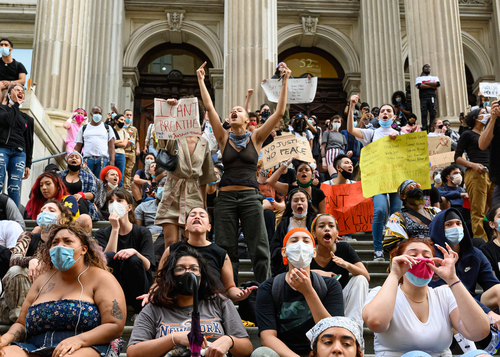A jury’s recent verdict against Greenpeace about the 2016 Dakota Access Pipeline protests highlights the complex challenge peaceful protest movements face when infiltrated by far-left agitators. As these outsiders inject confrontational tactics, legitimate causes risk being overshadowed by chaos, complicating narratives and potentially diminishing public sympathy.
Greenpeace Found Liable
Greenpeace was found liable for civil conspiracy, defamation, and trespass during the Dakota Access Pipeline protests. A jury awarded Energy Transfer, the pipeline company, $667 million in damages. The verdict may influence how nonprofit groups that back disruptive protests are scrutinized in future legal settings. Greenpeace, accused of supporting direct action with funds, training, and equipment, is appealing the verdict, and it has also filed a related lawsuit in the Netherlands.
Far-left organizations are soiling legitimate protests with outside agitators looking for a real fight https://t.co/VH5VXWLgTz pic.twitter.com/mGrR0Ih1lD
— NY Post Opinion (@NYPostOpinion) March 25, 2025
Protests labeled “hybrid” included peaceful demonstrators and trained agitators aiming to escalate tensions. The presence of such bifurcated groups led to incidents that diverted media focus from the issues the protests sought to highlight. The verdict against Greenpeace underscores a potential shift towards greater accountability for NGOs perceived to facilitate radical actions within legitimate protest movements.
Challenges for Peaceful Organizers
Organizers aiming for peaceful, constructive demonstrations face significant obstacles when dealing with far-left agitators. These agitators’ involvement often attracts immediate media coverage, overshadowing the substantive issues the protests intend to address. Infusing combative agendas can inadvertently delegitimize grassroots efforts, complicating public perception and support.
Yesterday, common sense prevailed thanks to true leadership at every level. Texas pushed back and sent a clear message to radical extremists: “NOT IN TEXAS.”
Yesterday’s unauthorized disruption on the UT-Austin campus was nothing more than an “organization” of professional…
— Cody Harris (@CodyforTexas) April 25, 2024
“As Park MacDougald has reported at Tablet Magazine, these loose networks of troublemakers are often financially supported ‘by a vast web of progressive nonprofits, NGOs, foundations, and dark-money groups.'”
The media’s focus tends to shift toward the ensuing disorder rather than the root causes of the protest, ultimately affecting the movement’s ability to communicate its core message effectively. Organizers must navigate these pitfalls, striving to maintain the intended peaceful focus despite attempts to subvert the agenda.
Legal and Social Implications
This case against Greenpeace and its potential ripple effects reminds us of the thin line protest organizers walk. While Greenpeace plans to appeal, the case has sparked discussions on NGO accountability in funding radical elements. An email from Greenpeace internally estimated funding could provide training for 3,000 activists, amplifying concerns regarding the NGO’s role in protest dynamics.
Increased scrutiny of nonprofits could lead to tighter regulations. This verdict and its fallout highlight the increasingly fraught atmosphere in which protests operate, where external influences seek to dominate narratives originally focused on legitimate social, political, or environmental issues.

